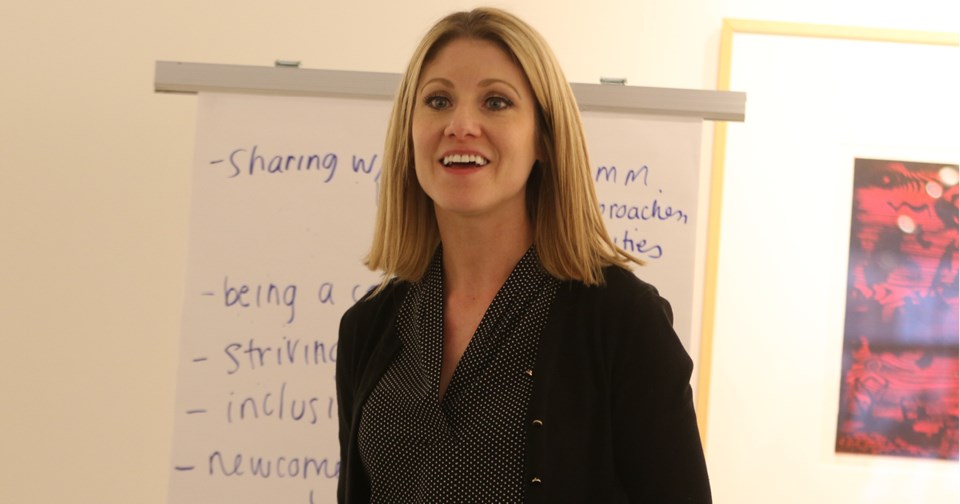HUMBOLDT ā Vibrant, diverse, supportive, rejuvenated, expanding. These were some of the words used to describe Humboldtās arts community by participants at a public forum about the value of arts.
The forum, organized by the Saskatchewan Arts Alliance and held the Humboldt and District Gallery May 2, was part of a province-wide research project being done by the University of Regina.
āWe're particularly interested in looking for how people value the arts, what they have to say about the contributions that the arts and artists make in their communities,ā said Amber Fletcher, an associate professor in the universityās department of Sociology and social studies.
Participants at the forum said the arts provided benefits to the community.
Economic benefits, they said, include the creation of jobs like dance teachers, music teachers and full-time artists, as well as donation of art pieces for local non-profits for fundraisers.
Beautification of the downtown through items like murals attract tourists and new residents to Humboldt, as well as boost civic pride.
The artsā effect on quality of life includes providing entertainment, giving local youth a creative outlet, exposing residents to new ideas and developing a sense of belonging in the community.
The participants also highlighted some challenges the arts community faces.
They said thereās a need to promote public understanding of the benefits of arts. One person said thereās a lot of support for sports because people understand what benefits it generates for the community, so effort has to be made to promote a similar level of understanding for the arts.
The lack of a performing arts theatre designed for music and theatre performances was also a concern. Much discussion focused on Melfortās Kerry Vickar Centre, which has a performing arts theatre, display space for art and rooms for arts organizations all in one spot. One participant pointed out the Kerry Vickar Centre was made possible due to community support and a multi-million-dollar donation from a former Melfort resident.
The participants also wanted to see better communication, both with the general public to inform them of upcoming arts events, as well as between organizations to better co-ordinate events to avoid overlap.
Volunteer burnout and a lack of free time was also a concern.
Fletcher said once her research team has hosted public forums about the arts in communities across the province, they would be identity the most common themes of the conversations and determine the challenges and strengths the arts community is facing province-wide.
āThere's a need for wider awareness of those values of the things that the arts contribute, and artists contribute,ā she said. āThat's really the goal: is to be able to put our finger on in a more scientific way what those values are and what they look like.ā
The research team will release what they find out in a report coming next year.




